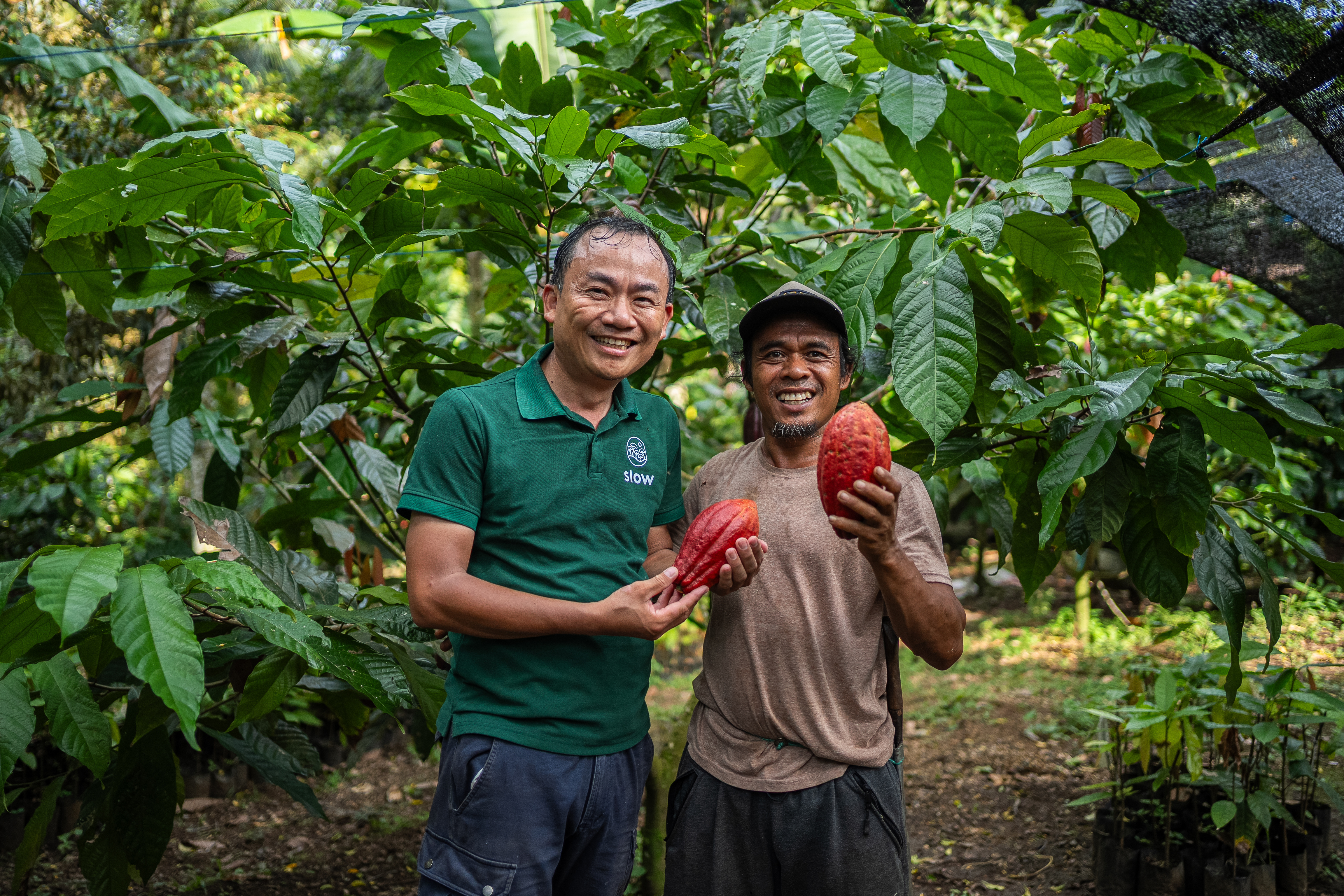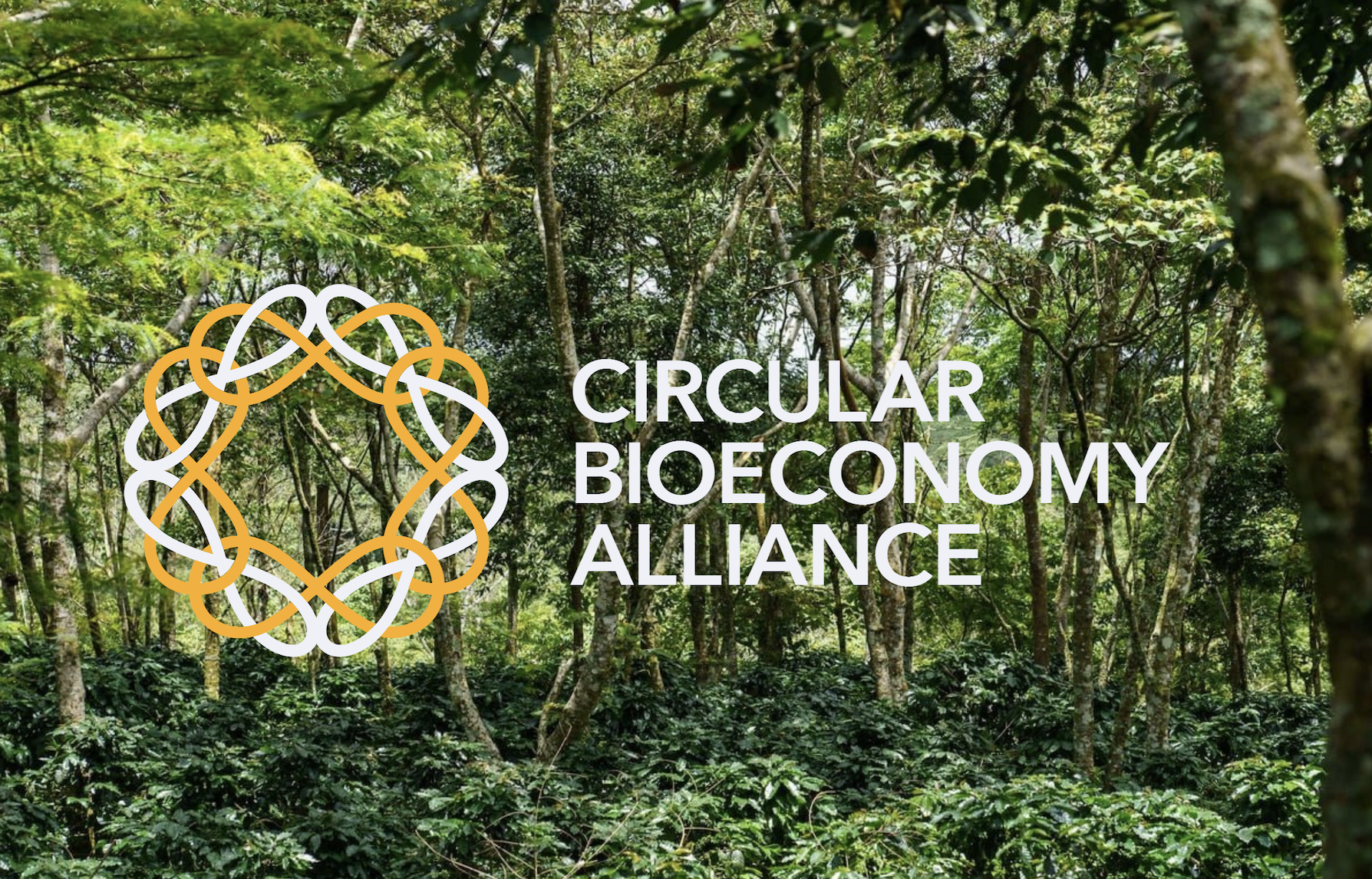Earth Day: Four ways to reduce your coffee and chocolate footprint
Earth Day reminds us that change doesn't have to wait for sweeping policy or perfect systems. Often, it starts with something as simple—and as...
May 20, 2024 - 2 min read
Buasy Huay Jied, who farms in Bolaven Plateau, Lao, said he had seen “nothing like it before”. The prolonged drought and extreme heat meant arabica crops wilted.
“The heat hit my two-hectare farm in Huaykhodnoy the hardest,” Buasy said.
“I had tried putting shade trees in other plots, but here they just haven’t grown enough to cover everything. All my crops in direct sunlight died.” He estimates he lost 30% arabica crops, “so that’s had a major impact on yield and quality”.
He said he tried cutting the stems and waiting for new branches. Only a few crops could be saved this way, but they also needed two to three years before producing coffee cherries again.
.jpg?width=1200&height=800&name=Heatwave%20damage%20on%20coffee%20farm%20-%20Slow%20Forest%20(Mr.%20Buasy%20Huayjiet%20village).jpg)
Scorching heat leaves dead crops. ©️ Slow/Saosavanh Ketmala
“I’ve grown coffee for 27 years here, but nothing like this has ever happened,” Buasy said. Two or three seasons back, all his farms harvested somewhere between 15 to 18 tonnes of organic Arabica cherries. With the heat and all, he estimates harvest will be down to around 12 tonnes this year.
Lao recorded its hottest ever temperature for April 26, hitting 43.2C according to the country’s meteorological service. News report indicates since mid-February, some provinces in Laos have experienced a sudden surge in temperature.
In our farms in Lao, our country manager Madrira Bopanna says temperatures from January to April were 5C higher than normal. Some crops show signs of wilting, and not only that, but next year’s harvest and plant growth will still be impacted because the heat makes ripening uneven and affects the harvest.
Coffee crops can withstand a reasonable amount of variation in weather, but the conditions in April were too much, so crops have suffered.
The problem is not isolated to Lao alone, our Head of Impact Nguyen Dinh Dai said. Climate change has certainly intensified heatwaves, in the same way it has accelerated other extreme weather events like tropical cyclones and droughts, across the region.

Crops withered in extreme heat and drought conditions in Bolaven Plateau, Lao, earlier this month. ©️ Slow/Saosavanh Ketmala
The Intergovernmental Panel on Climate Change, the UN body on climate science, has long warned that heatwave frequency has increased since the middle of the 20th century in large parts of Asia.
Dai emphasized the need for greater efforts to help farmers adapt, as coffee is not just a key beverage but a livelihood for millions of small farmers worldwide.
“In the main producing regions today, the farming systems have to adapt to the changing conditions,” said Dai. Agroforestry could offer a lifeline by giving a canopy of shade, so coffee is protected from extreme heat. In the rainy season, shade trees protect the ground from soil erosion.
This is what Slow, in collaboration with WWF Vietnam and WWF Finland, is trying to achieve in the Vietnam coffee belt of Quang Tri. This effort is funded by the Danida Green Business Partnership (DGBP) under the Prosperous Farmers and Forests Partnership. Slow, in collaboration with WWF Vietnam and WWF Finland, is working to achieve this transformation in Vietnam's Quang Tri coffee belt.
“We’re working with hundreds of small scale farmers to convert from monoculture to coffee agroforestry," Dai continued. "We help them with seedlings and provide them with the resources they need to build resilience in this new system.”
Learn more about what we do in Vietnam here.

Earth Day reminds us that change doesn't have to wait for sweeping policy or perfect systems. Often, it starts with something as simple—and as...

Big news from Slow. African Coffee Roasters is now part of the Slow family. And this isn’t just an acquisition—it’s a major step forward in how...

A few years ago, coffee and chocolate were just products. But at Slow, we’re changing the story. We’re not just selling beans and cocoa, we’re...